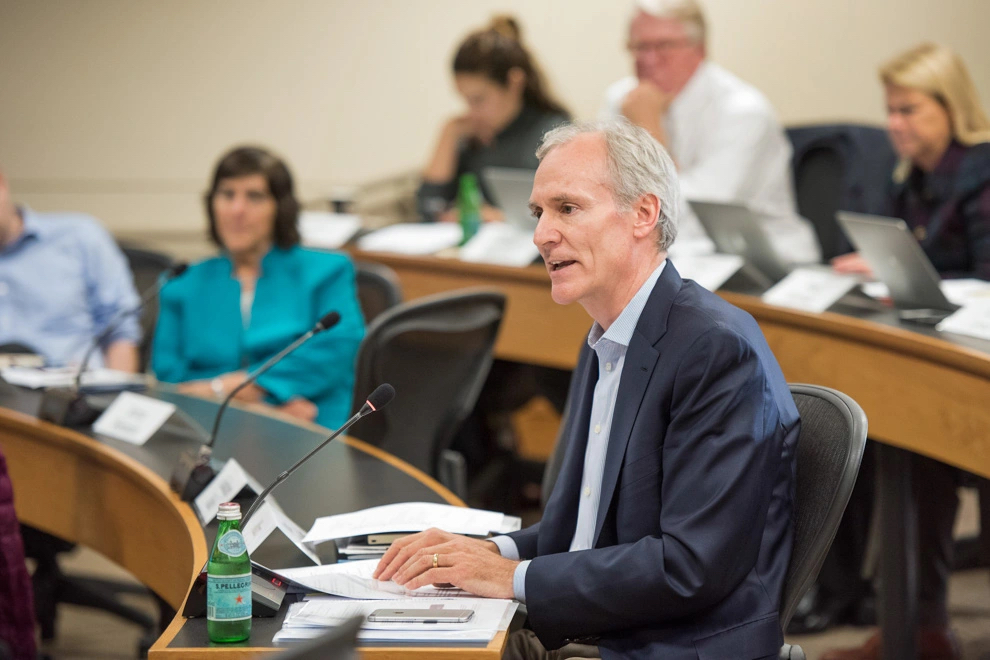Science and Cell have published Editorial Expressions of Concern for three papers on which University president Marc Tessier-Lavigne is senior author. Editorial Expressions of Concern are issued by journal editors when potential problems may significantly undermine confidence in a paper.
The University, responding to questions The Daily sent to Tessier-Lavigne, wrote in a Nov. 28 statement that the images with alleged manipulation in the three papers “do not affect the data, results or interpretation of the papers,” and restated this claim three times. Prominent journal Science cast doubt on that assertion with its newest public statement.
According to the Editorial Expression of Concern for one 2001 paper, published by Tessier-Lavigne and another member of his lab, “not all specific conclusions related to these panels are supported by these figures.” Science editor in chief Holden Thorp said that the journal has not reached a final determination but that “there are obviously issues with the figures” that could impact how readers view the research.
Thorp said “retraction is absolutely on the table,” though he made clear that would depend on the results of the University’s investigation. Cell similarly wrote that “a university investigation is underway and its outcome will inform any further action that we may take.”
The Expressions of Concern will be affixed to the top of the three papers to inform readers of the concerns and encourage anyone who may work with the research to be cautious. They are not in and of themselves corrections or retractions and could be removed in the future if the investigation determines the papers still stand. They could also turn into further action on the part of the journals.
According to Thorp, Tessier-Lavigne consented to the publication of the Expressions of Concern and has been in regular contact with the journals. Tessier-Lavigne wrote, through a University spokesperson, that “the notifications appropriately alert the research community and represent an important step in the process of evaluating the concerns.”
Tessier-Lavigne reiterated in a second letter to faculty on Tuesday that he “care[s] deeply about the rigorous pursuit of the truth and integrity of science.” He also included links in this letter to the PubPeer allegations on several papers for which he is a co-author.
“That takes courage, and I respect him for that,” wrote Elisabeth Bik, the research misconduct expert who has identified a number of the errors now being investigated.
Tessier-Lavigne was made aware through PubPeer, a platform where scientists identify anomalies in published data, of a number of errors in 2015, including some now under scrutiny by Science and Cell. He did not respond on PubPeer to the allegations at that time or in the seven years since. He prepared corrections for two of the papers which were not published due to an error at Science.
Some community members criticized Tessier-Lavigne’s explanations of the errors. “This is hollow and easily refutable,” said one senior scientist in the School of Medicine who requested anonymity due to fear of professional ramifications.
Others rallied to Tessier-Lavigne’s support, including Stephen Monismith, an engineering professor who wrote that he found Tessier-Lavigne “to be honest and straightforward about his views and intentions,” in an email to The Daily.
The Daily obtained email correspondence from weeks prior showing that the Board of Trustees reached out to Faculty Senate chair Kenneth Schultz to speak with him “about the MT-L research integrity issue.” It is unclear who was present and what was discussed during the meeting. The Board of Trustees also discussed the investigation in executive session last week.
Some Stanford scientists continue to express their discontent with both the images in question and the University’s handling of the investigation. Email correspondence obtained by The Daily between professors at the School of Medicine included severe criticism of the internal review undertaken by the University’s special committee. “Some of the data shown in the Daily articles are almost laughably overtly problematic,” wrote one professor.
The special committee, meanwhile, has not yet reached out to Science, according to Thorp, who said “it’s going to be longer than we would like before they get done.”
Mark Filip, who the University announced last week would lead the investigation into Tessier-Lavigne’s research, has not yet issued a statement or responded to requests for comment.
According to Michael Luttig, a former federal judge and close friend of Filip, “There is no finer person in the nation that the Board of Trustees could have asked to undertake this sensitive investigation than former Federal Judge Mark Filip.”
The University and the special committee have not responded to questions about the scope of the investigation, what scientific advisors will participate and what standard Tessier-Lavigne will be held to.
This story has been updated to include additional comment from Marc Tessier-Lavigne.
